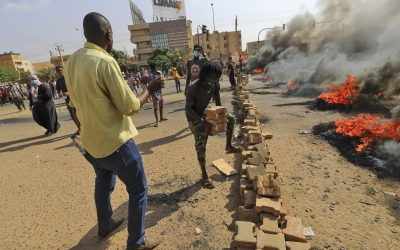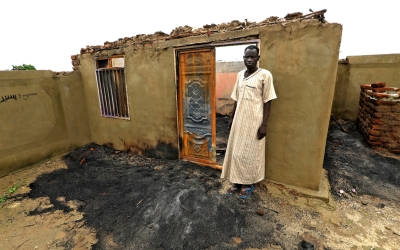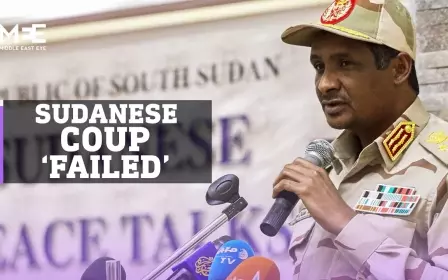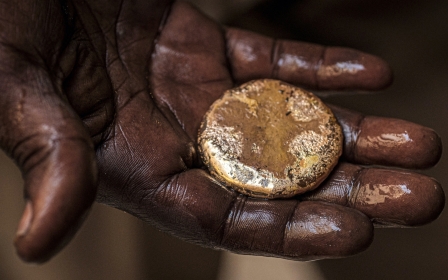What's behind the US-Russia tussle over a Red Sea naval base in Sudan?
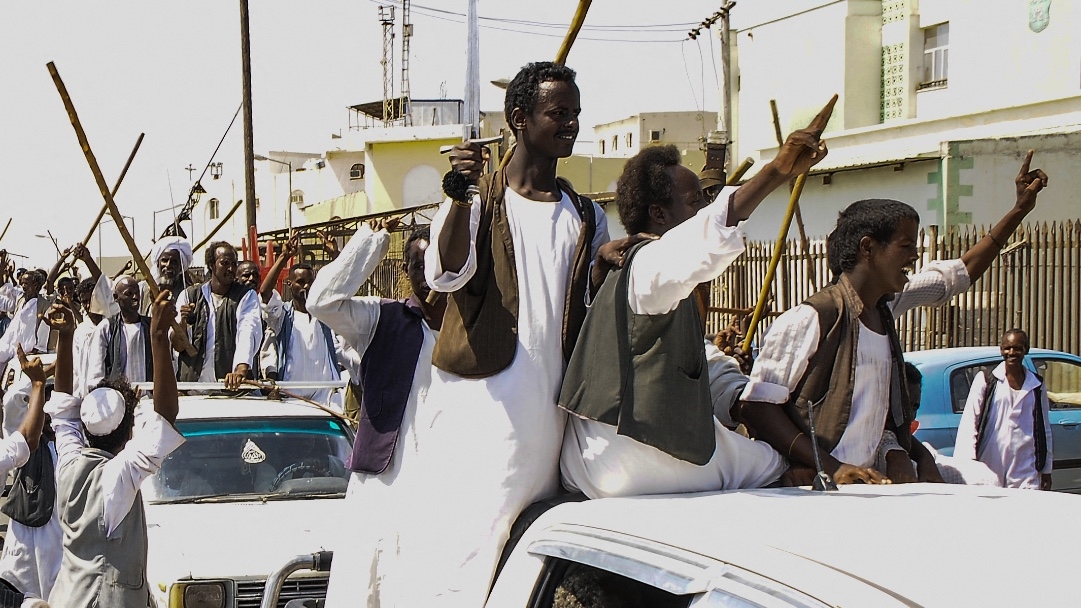
The US has reiterated its concerns over an agreement that would allow Russia to build a naval base on Sudan's Red Sea coast, potentially giving the Kremlin a foothold along the strategic waterway at a time of heightened tensions with the West over the war in Ukraine.
On Tuesday, John Godfrey, the US ambassador to Sudan, raised the issue in an interview with the Sudanese newspaper Al-Tayar, saying: "If the government of Sudan decides to proceed with the establishment of this facility, or to renegotiate it, it will be harmful to Sudan's interest."
Sudan signed the agreement allowing Moscow to build the base, capable of hosting nuclear-powered ships, during the administration of president Omar Hassan al-Bashir, who was removed from power in 2019.
Russia is set to lease the site for 25 years and could extend the deal for another 10 years, giving it access to the Red Sea's warm waters and the international trade chokepoint of Bab el-Mandeb.
Bases
New MEE newsletter: Jerusalem Dispatch
Sign up to get the latest insights and analysis on Israel-Palestine, alongside Turkey Unpacked and other MEE newsletters
Global powers have long coveted bases on the Red Sea to project power and protect trade interests. Djibouti, to the south of Sudan, is home to military bases from China, France, Italy and Japan. In 2016, China opened its first overseas military outpost in Djibouti.
The region is also a playground for Gulf states. Saudi Arabia and Egypt already have access to the Red Sea from their coastlines, but Turkey, Qatar and the UAE are also competing for influence in the region.
Turkey operates a training base for Somali troops in Mogadishu. In 2017, it signed an agreement with Sudan for the restoration of Suakin island, a former Ottoman possession on the Red Sea coast.
The UAE established a base at the Eritrean port of Assab in 2015. It has used the facility as a launching point for naval and air attacks against Iran-aligned Houthi forces in Yemen.
Not to be outdone, Tehran has also been able to carve out a perch on the Red Sea, raising alarm in the US about maritime threats potentially posed by bomb-laden drone boats.
Gold
Washington's warning about Russia comes amid revelations of a massive effort by the Kremlin to extract gold from the African country. US officials say this could prop up the Kremlin's war chest as it faces slumping oil prices and western sanctions.
If a Russian naval base is built in Sudan, it would represent a significant move in the two countries' bilateral relationship.
So far, Russia's involvement in Sudan has been spearheaded by Wagner, a shadowy network of mercenaries who have reportedly fought in conflicts from Libya to Syria with links to the Kremlin. According to the New York Times, the group has led gold smuggling operations in Sudan.
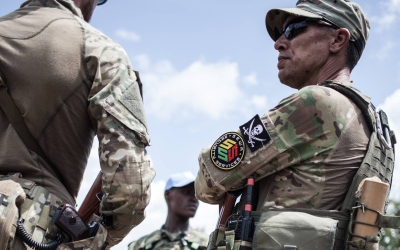
In April, Middle East Eye spoke with eyewitnesses who told of a spate of attacks purportedly carried out by Russian armed groups in a gold-mining area of Central African Republic, leaving hundreds dead and sending thousands more fleeing over the border into Sudan.
According to one eyewitness, the Russians used heavy weapons, including attack helicopters, tanks and armed four-wheel-drive vehicles in the attack.
"What we saw was very brutal and bloody. They used these aggressive forces and weapons against the civilians, including slaughtering the traders and miners, as well as looting the gold and money," 35-year-old Adam Zakaria, a survivor of the attack, told MEE.
‘Brutal and bloody’
Russia was a major player in Africa during the Cold War, but its influence waned after the collapse of the Soviet Union. A 2017 meeting in Sochi between Vladimir Putin and then- president Bashir opened the way for Moscow's re-entry into the continent, with Bashir pledging Sudan could be Russia's "key to Africa".
The Kremlin has since expanded its footprint across the continent. Wagner mercenaries have been reportedly deployed to Mozambique, the Central African Republic, and most recently Mali, where they have filled the power void left by departing French troops. Wagner has been accused of carrying out atrocities against civilians in many of these areas.
Russia has turned to Africa for partners as it finds itself more isolated in the West over its invasion of Ukraine. In July, Russian Foreign Minister Sergey Lavrov sought to leverage ties with regional states on a tour across the continent, during which he blamed the West for rising food prices.
Russia has seen some success from its outreach. When the United Nations held a vote in March to condemn Russia's invasion of Ukraine, 25 African countries voted either to abstain or did not vote at all, and just 28 African states voted in favour of the resolution.
'Consequences'
It's unclear whether the Kremlin will be able to follow through on its plans for a Red Sea naval base. Sudan's economic crisis has worsened since the military ousted the country's transitional government in October last year.
The US has already frozen $700m in economic assistance. The World Bank suspended aid disbursements to Sudan. The International Monetary Fund has also held up its programme of nearly $50bn in debt relief for the country until the restoration of the civilian-led government.
In his interview on Tuesday, Godfrey, the US ambassador, warned Sudan of consequences should it follow through on its agreement with Russia.
"All countries have a sovereign right to decide which other countries to partner with, but these choices have consequences, of course."
The ambassador added that any such base on the Red Sea would "lead to further isolation of Sudan at a time when most Sudanese want to become closer to the international community".
This article is available in French on Middle East Eye French edition.
Middle East Eye delivers independent and unrivalled coverage and analysis of the Middle East, North Africa and beyond. To learn more about republishing this content and the associated fees, please fill out this form. More about MEE can be found here.


